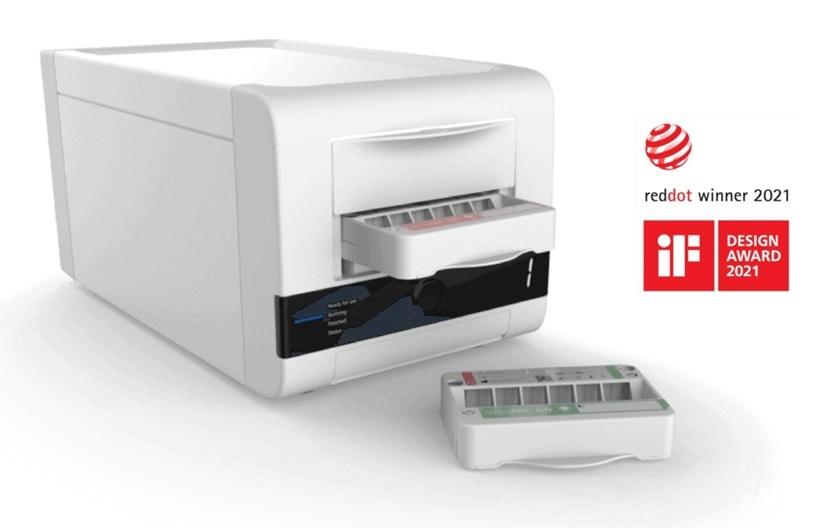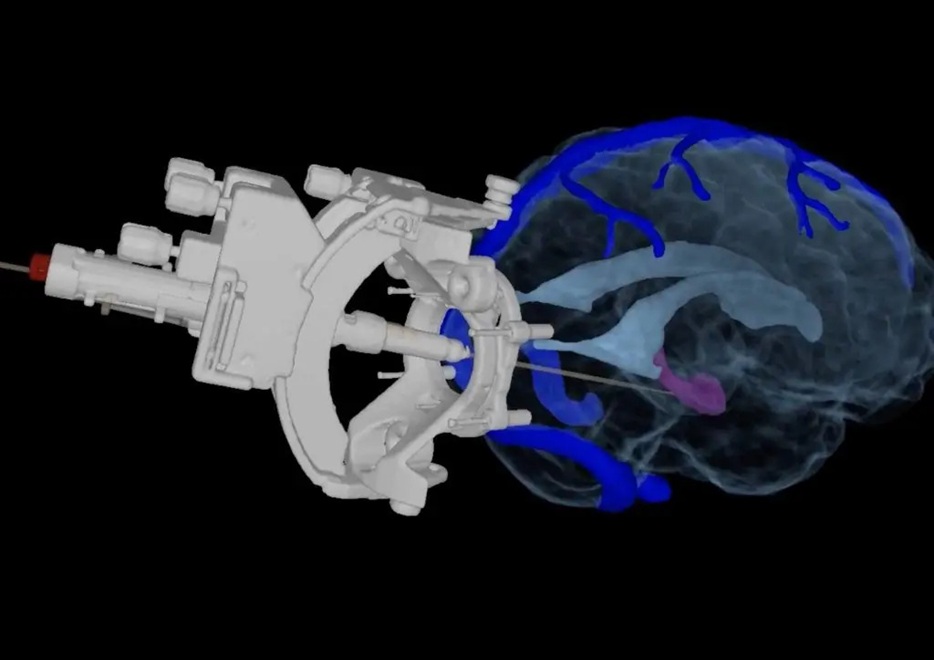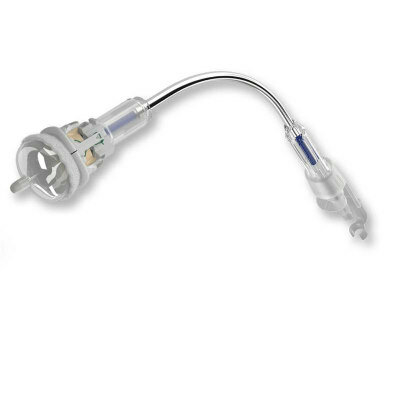Ultra-Rapid AST System Provides Critical Results for Sepsis Patients
|
By HospiMedica International staff writers Posted on 27 Dec 2024 |

Sepsis is a critical condition and one of the leading causes of death in hospitals. Millions of adults are diagnosed with sepsis each year, and it is also a primary reason for hospital readmissions. Hospital staff are urged to start treatment for life-threatening sepsis within one hour of diagnosis, often referred to as the 'golden hour.' Now, an ultra-rapid antimicrobial susceptibility testing (AST) system can support the timely and effective management of sepsis, enabling clinicians to make faster decisions regarding antibiotic treatments.
The QuickMIC ultra-rapid AST system, developed by Gradientech AB (Uppsala, Sweden), is designed to provide critical results for sepsis patients. This instrument can analyze a single positive blood culture sample per run, delivering precise minimum inhibitory concentration (MIC) values within 2–4 hours directly from positive blood cultures. The system employs unique technology based on a continuous linear antibiotic gradient, offering greater resolution, precision, and accuracy compared to methods that rely on discrete antibiotic concentrations. Microcolonies of bacteria exposed to this gradient are monitored in real-time using live imaging. The QuickMIC Analyst software then examines the growth patterns along the antibiotic gradient to determine accurate MIC values.
QuickMIC cassettes test each blood culture sample against a panel of multiple antibiotics, with each pre-filled cassette containing twelve antibiotics specifically designed for common sepsis-causing bacteria. The gram-negative antibiotic panel targets pathogens such as E. coli, Klebsiella spp., P. aeruginosa, E. cloacae, A. baumannii, Proteus spp., Citrobacter spp., and S. marcescens. Laboratories can use QuickMIC in conjunction with their preferred rapid identification methods to provide quicker results to clinical teams. Up to twelve QuickMIC instruments can be stacked together, allowing labs to increase testing capacity while saving valuable bench space. QuickMIC and its gram-negative panel are CE-marked and commercially available in Europe, although they are not yet available for sale in the United States.
Related Links:
Gradientech AB

Latest Critical Care News
- Handheld Device Could Transform Heart Disease Screening
- Flexible Semi-Autonomous Robot Could Deliver Medicine Inside Body

- Neurorestorative Treatment Strategies Hold Promise for Most Severe Forms of Epilepsy
- Gene Discovery Could Help Grow New Heart Arteries
- Study Discovers Invisible Transmission of Common Hospital-Associated Infection
- Non-Invasive Neuro-Ophthalmology Techniques Could Detect Brain Tumors Earlier
- Mass Manufactured Nanoparticles to Deliver Cancer Drugs Directly to Tumors
- World’s Smallest Pacemaker Fits Inside Syringe Tip

- AI-Powered, Internet-Connected Medical Devices to Revolutionize Healthcare, Finds Study
- Starfish-Inspired Wearable Tech Enables Smarter Heart Monitoring
- AI Eye Scans Could Help Identify Heart Disease and Stroke Risk
- Digital Heart Twin Improves Diagnosis and Treatment of Cardiac Arrhythmias
- First-Of-Its-Kind AI-Powered Probability Scoring System Assesses Heart Failure with Preserved Ejection Fraction
- AI-Assisted Colonoscopy Detects More Polyps but Has Modest Effect on Cancer Risk
- Wearables Could Reduce Need for Continuous Blood Thinners in Patients with Atrial Fibrillation
- AI Model Provides Real-Time Sepsis Risk Alerts for Improving ICU Patient Survival
Channels
Critical Care
view channel
Flexible Semi-Autonomous Robot Could Deliver Medicine Inside Body
Soft robotics, in contrast to traditional rigid robots, are composed of flexible materials that mimic the movements of living organisms. This inherent flexibility makes them well-suited for navigating... Read more
Handheld Device Could Transform Heart Disease Screening
Heart valve disease (VHD), also known as valvular heart disease, has been described as the “next cardiac epidemic” due to its prognosis being worse than many cancers. Approximately 50% of patients with... Read more
Gene Discovery Could Help Grow New Heart Arteries
The human heart receives blood and oxygen from several coronary arteries, with the two main arteries located on the front of the heart on the right and left sides. To supply oxygenated blood to the back... Read more
Neurorestorative Treatment Strategies Hold Promise for Most Severe Forms of Epilepsy
Epilepsy affects approximately 50 million people worldwide, with around 30% of these individuals, or roughly 15 million people, suffering from drug-resistant epilepsy (DRE). While some patients experience... Read moreSurgical Techniques
view channel
New Transcatheter Valve Found Safe and Effective for Treating Aortic Regurgitation
Aortic regurgitation is a condition in which the aortic valve does not close properly, allowing blood to flow backward into the left ventricle. This results in decreased blood flow from the heart to the... Read more
Minimally Invasive Valve Repair Reduces Hospitalizations in Severe Tricuspid Regurgitation Patients
The tricuspid valve is one of the four heart valves, responsible for regulating blood flow from the right atrium (the heart's upper-right chamber) to the right ventricle (the lower-right chamber).... Read morePatient Care
view channel
Portable Biosensor Platform to Reduce Hospital-Acquired Infections
Approximately 4 million patients in the European Union acquire healthcare-associated infections (HAIs) or nosocomial infections each year, with around 37,000 deaths directly resulting from these infections,... Read moreFirst-Of-Its-Kind Portable Germicidal Light Technology Disinfects High-Touch Clinical Surfaces in Seconds
Reducing healthcare-acquired infections (HAIs) remains a pressing issue within global healthcare systems. In the United States alone, 1.7 million patients contract HAIs annually, leading to approximately... Read more
Surgical Capacity Optimization Solution Helps Hospitals Boost OR Utilization
An innovative solution has the capability to transform surgical capacity utilization by targeting the root cause of surgical block time inefficiencies. Fujitsu Limited’s (Tokyo, Japan) Surgical Capacity... Read more
Game-Changing Innovation in Surgical Instrument Sterilization Significantly Improves OR Throughput
A groundbreaking innovation enables hospitals to significantly improve instrument processing time and throughput in operating rooms (ORs) and sterile processing departments. Turbett Surgical, Inc.... Read moreHealth IT
view channel
Printable Molecule-Selective Nanoparticles Enable Mass Production of Wearable Biosensors
The future of medicine is likely to focus on the personalization of healthcare—understanding exactly what an individual requires and delivering the appropriate combination of nutrients, metabolites, and... Read more
Smartwatches Could Detect Congestive Heart Failure
Diagnosing congestive heart failure (CHF) typically requires expensive and time-consuming imaging techniques like echocardiography, also known as cardiac ultrasound. Previously, detecting CHF by analyzing... Read moreBusiness
view channel
Expanded Collaboration to Transform OR Technology Through AI and Automation
The expansion of an existing collaboration between three leading companies aims to develop artificial intelligence (AI)-driven solutions for smart operating rooms with sophisticated monitoring and automation.... Read more

















